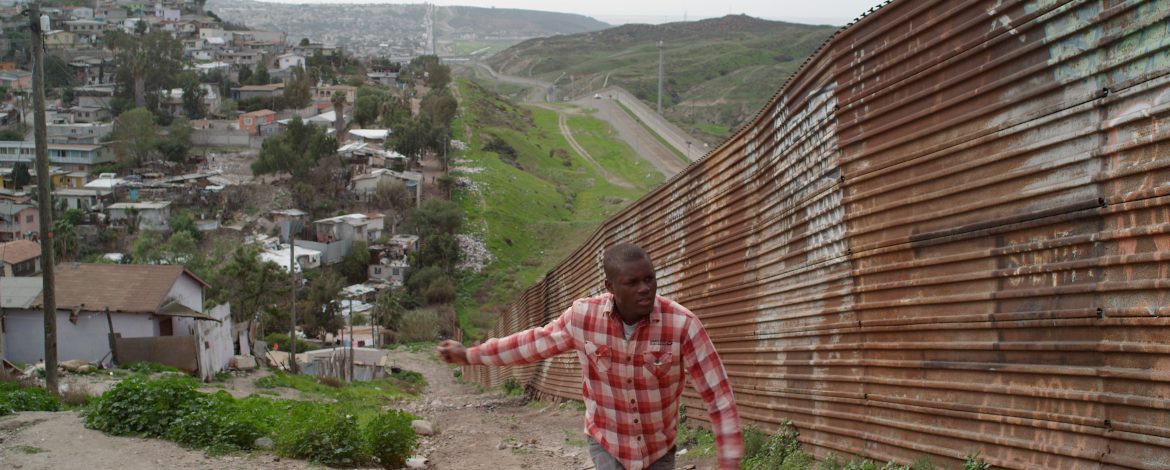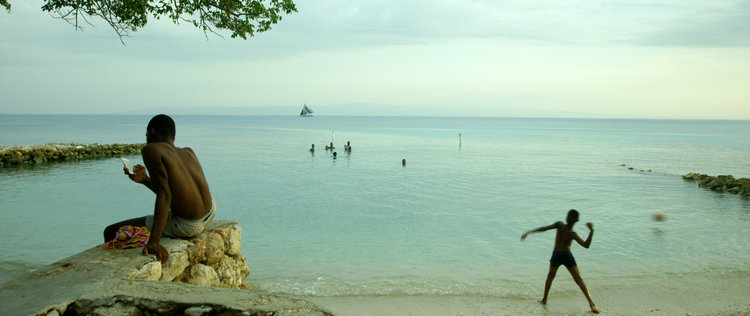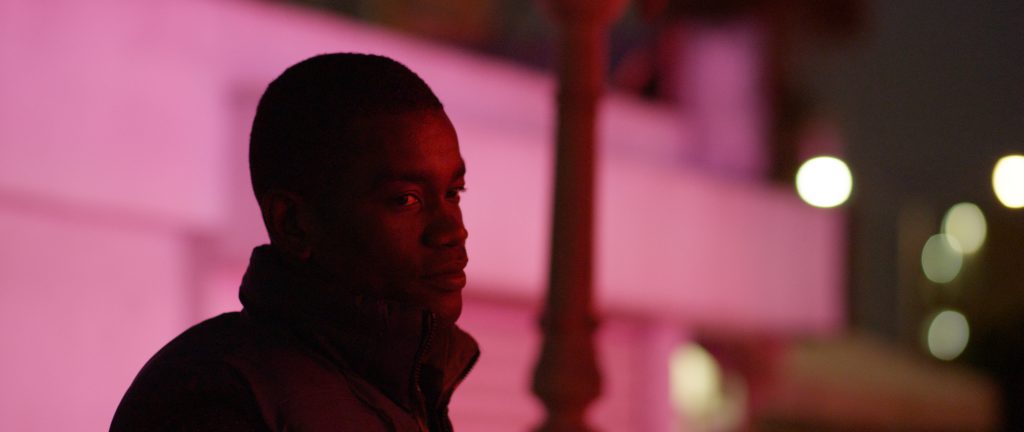

Cheche Lavi gives tragedy and tribulation a human face, questioning how an America that claims all people deserve the future they fight for can rob immigrants of that chance time and time again. What is America if not a contradiction?
The film follows Robens and James, two Haitian friends who, after hearing a rumor that the US would grant asylum to any Haitian at its border following the 2010 earthquake, made their way towards Mexico. They are among thousands, all of whom are now awaiting admission to the States. For many, the U.S. represents opposing forces simultaneously, serving as both a beacon of hope and a merciless behemoth. America’s impact is far-reaching in either case — Ellison inundates audiences with scenes featuring the U.S. pop culture found throughout Mexico. A protestor sports a Captain America shirt, friends discuss a Lakers game, a man’s bed sheets are covered in Batman illustrations: the cultural impact of America is palpable.
The political impact is similarly felt. Cheche Lavi is very much a story of inaction, from the government and the general populace, when the time comes to aid those who have nothing. Ellison works in several shots of a border wall being built between Mexico and the United States, a visual representation of America’s apathy towards the immigrant plight, and the efforts we’ve taken to create an even larger divide. Many of the Haitians who had fled to Mexico were spurred to do so as a last resort, having sold what little they had just to reach border cities like Tijuana. After doing so, they were greeted not with salvation but exasperation, told by the government they’ve sacrificed everything for to simply dwell in their squalor until further notice. Nothing to do, and nothing that will be done for them.

The imagery of the border wall serves a secondary purpose — it embodies fears of entrapment, being caged into your hardships by a government that couldn’t care less. Feeling trapped, both physically and emotionally, is one of the film’s larger themes. After being granted U.S. asylum, James is held by ICE in America for over seven months (far more than the two weeks he’d been anticipating). His hands and feet were chained for 8 or 9 or 10 hours at a time, imprisoned not for a crime, but for his mere existence. Near the film’s start, a protestor admonishes the U.S. for the way it’s treated the Haitian migrants, sure that not even a dog in America lives the way they’ve been forced to. In sum, immigrants are treated like animals — caged, mistreated, and stripped of their humanity as is convenient.
With Cheche Lavi, Sam Ellison points the finger back at an audience that could witness the pain of individuals around the world and consistently turn a blind eye to it. Ellison berates a government that responds to cries for help not with benefits, but with barriers. Recounting his time in the U.S., James wonders aloud why
[America] says they are a super power, they are there to give out peace and justice, and they choose to commit injustices against immigrants who were allowed to enter their country”.
What is America if not a contradiction?
